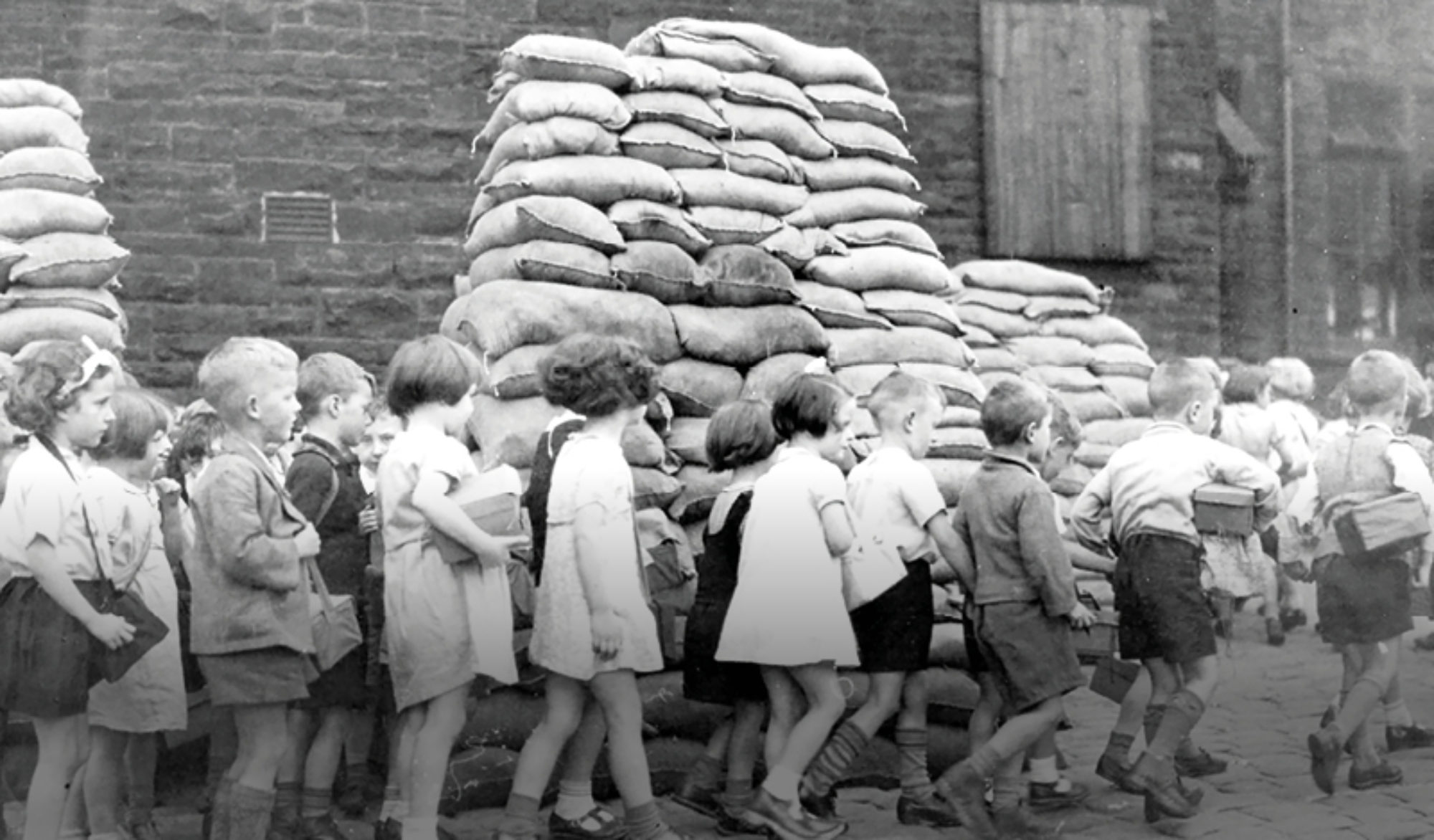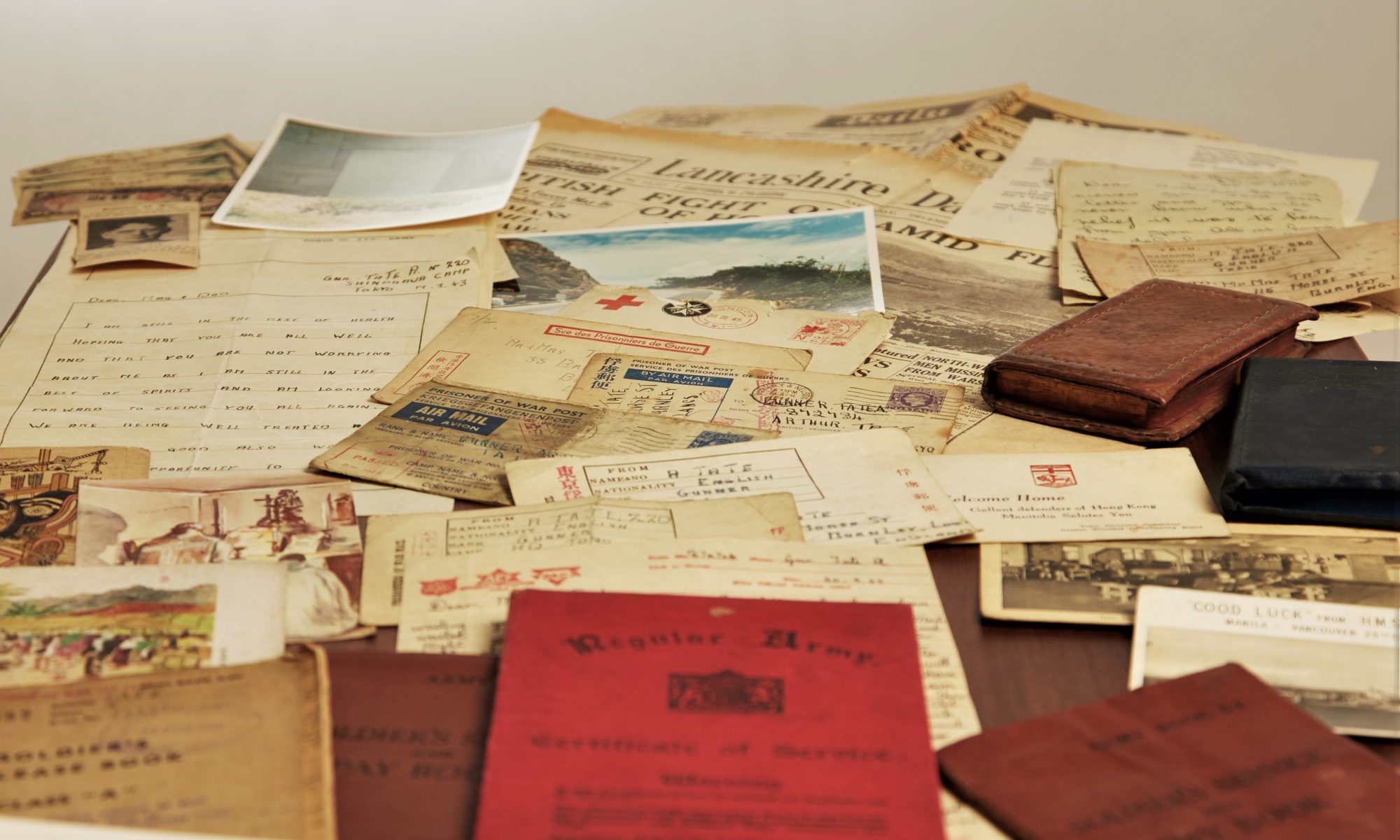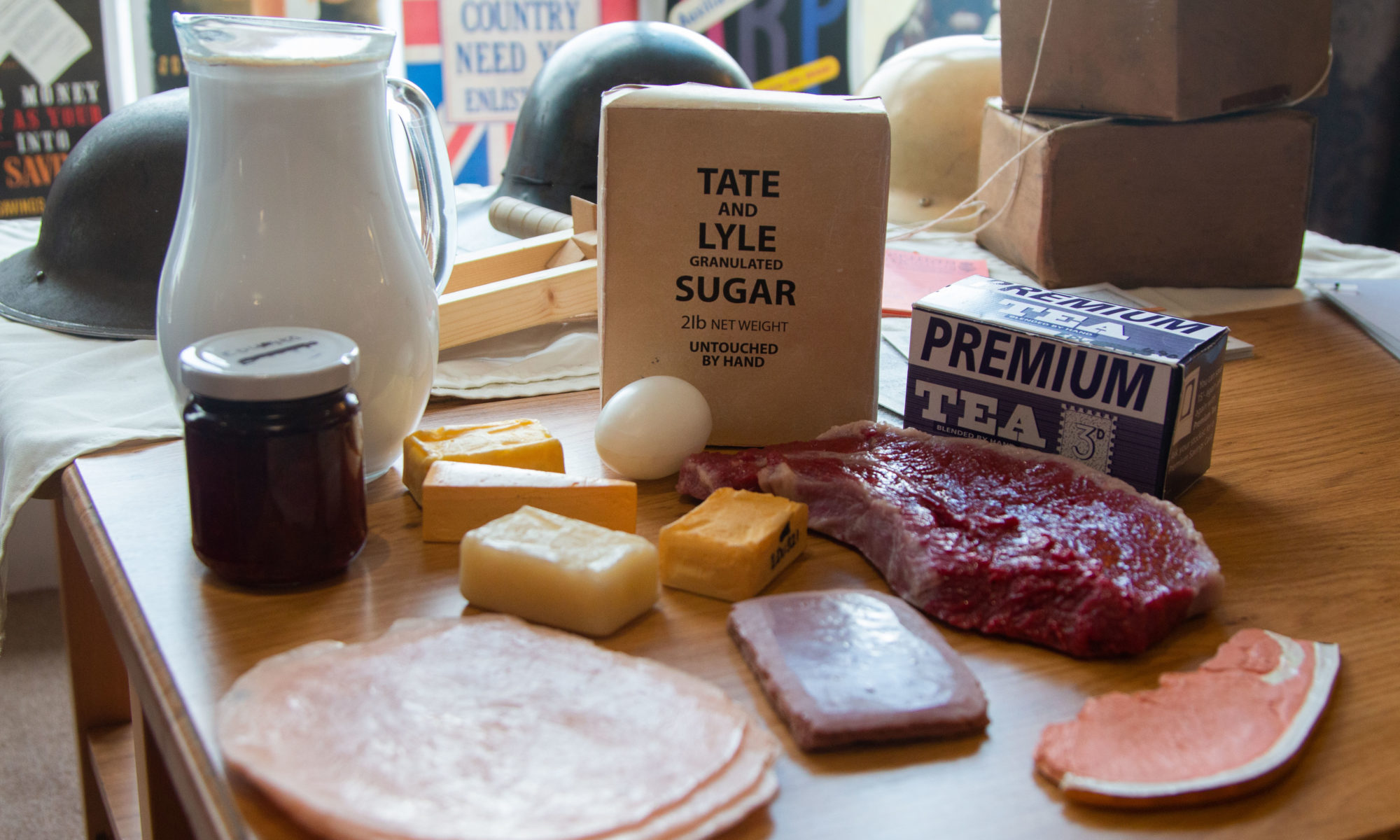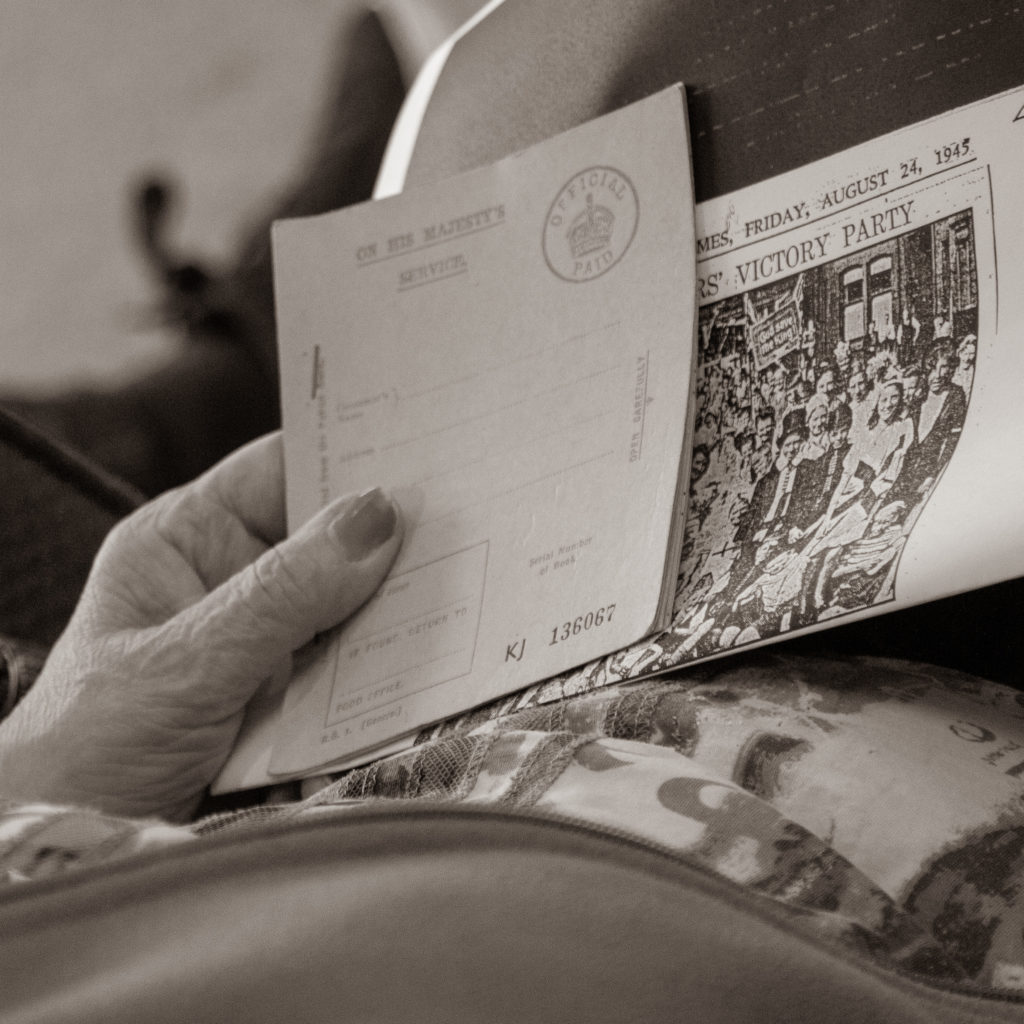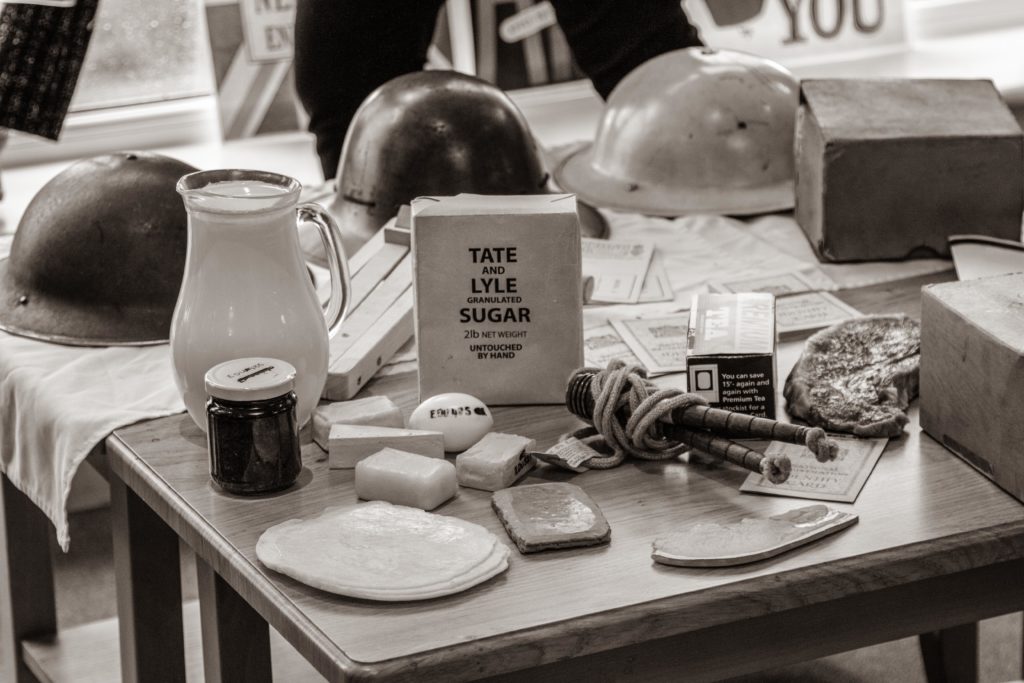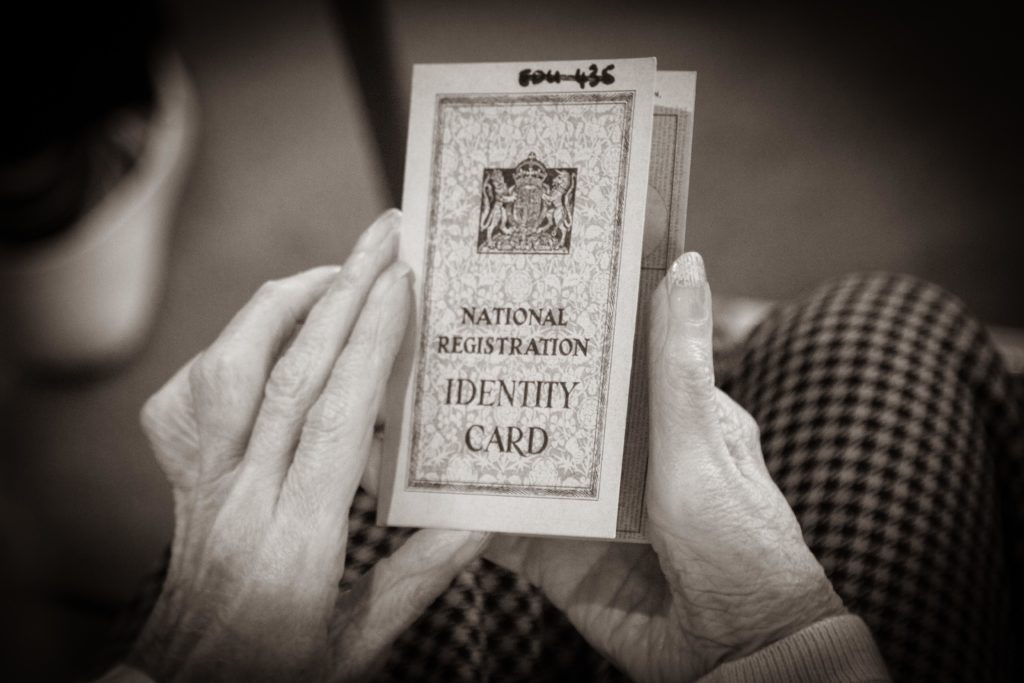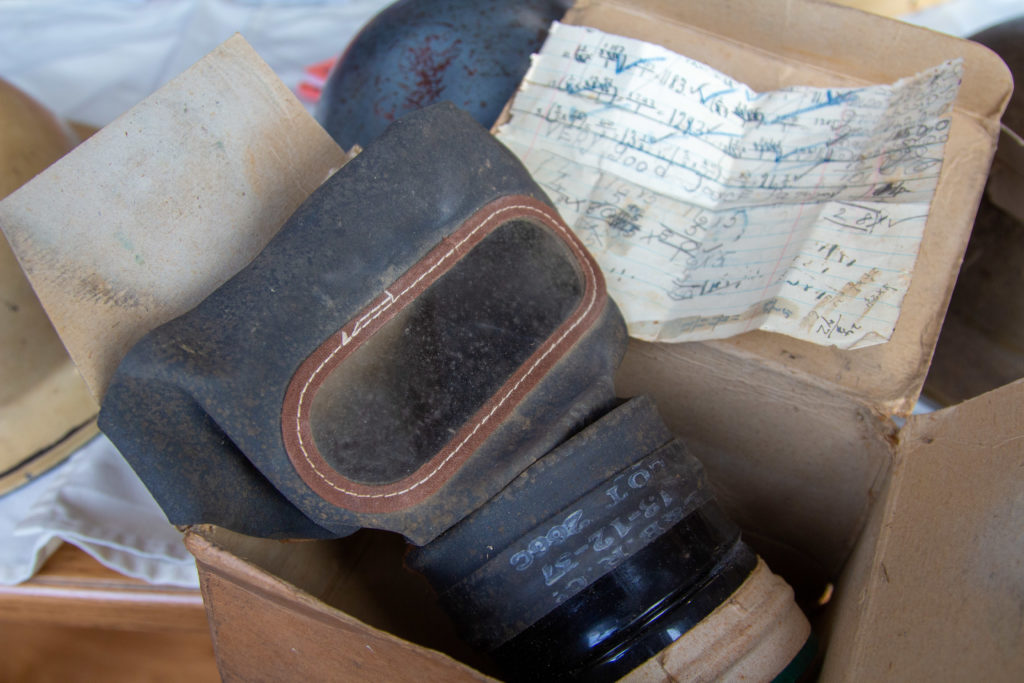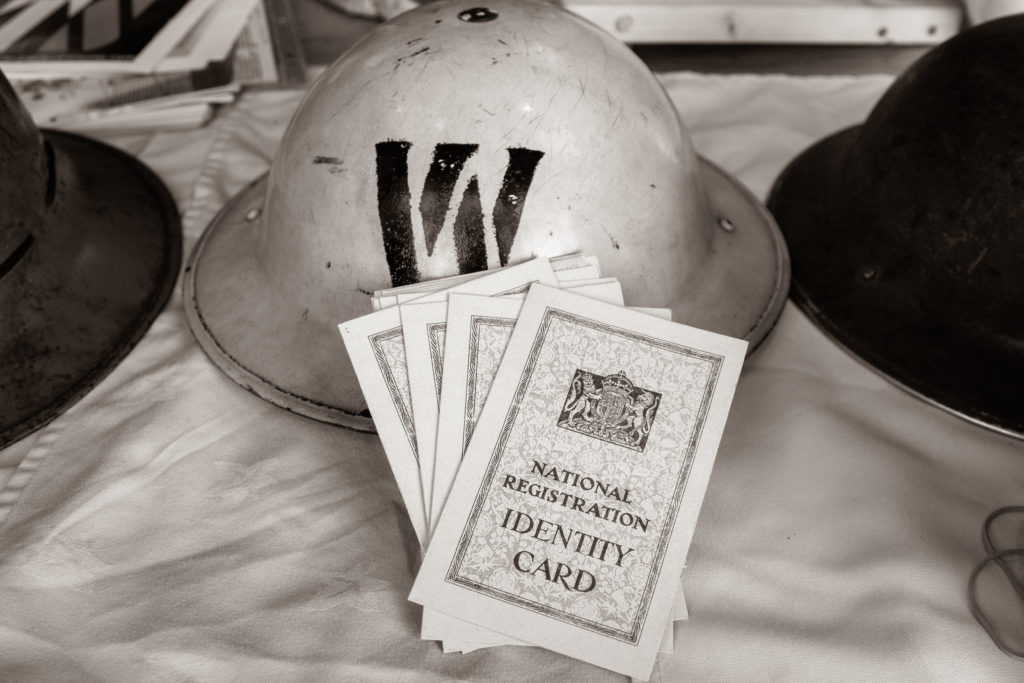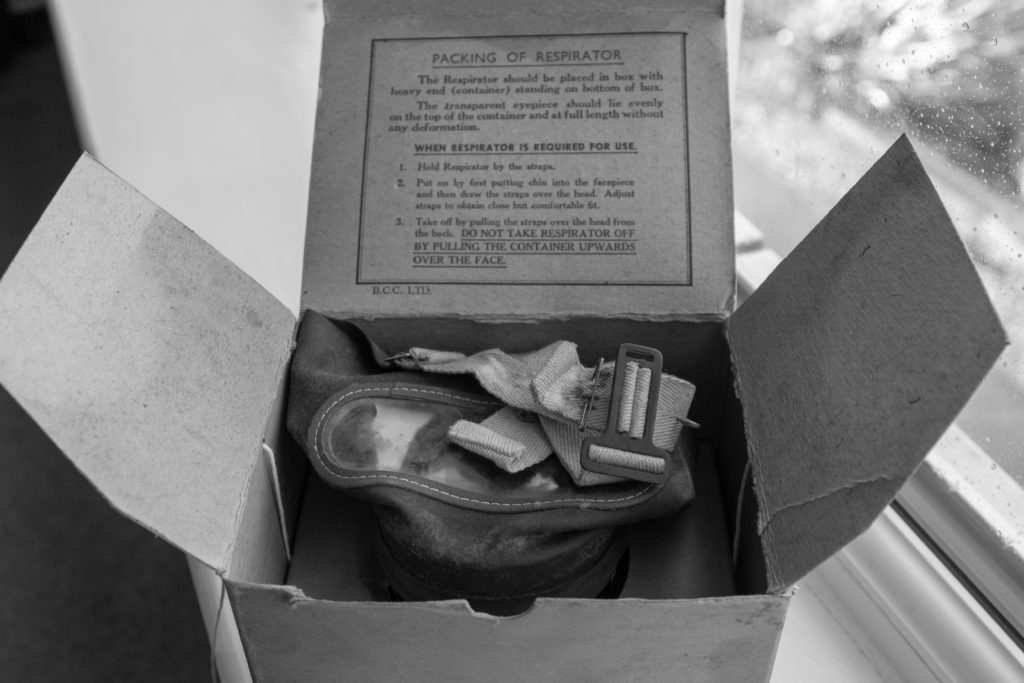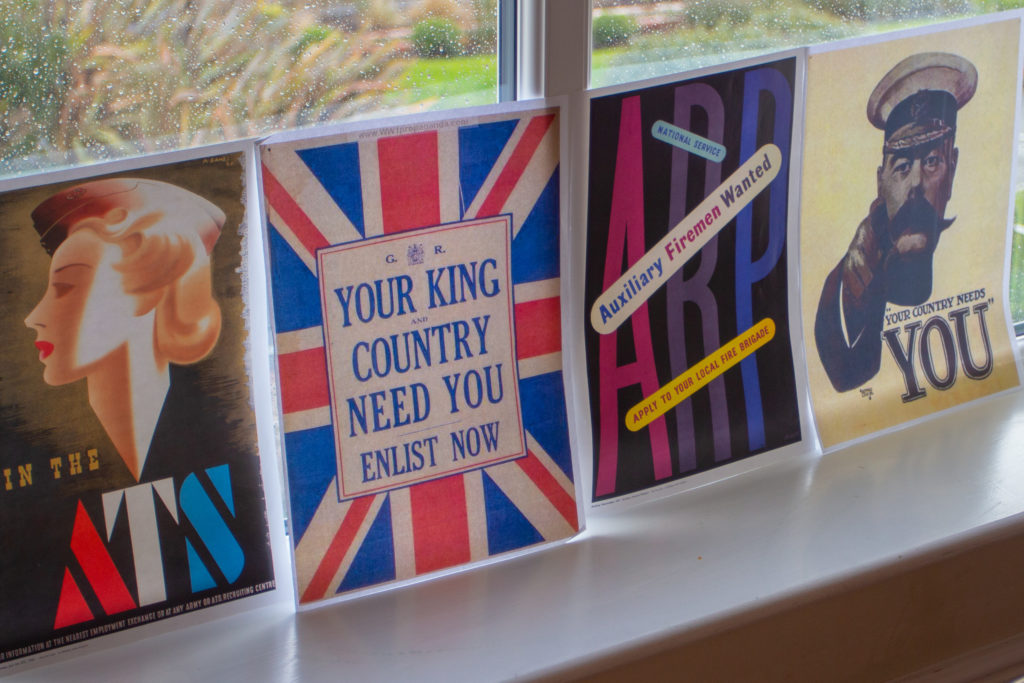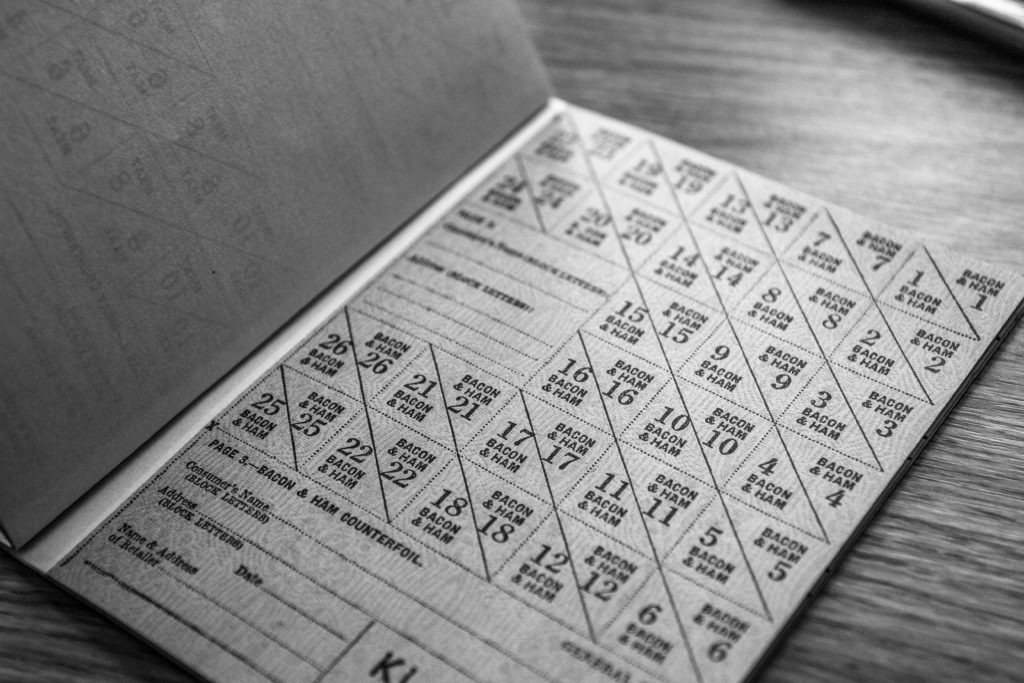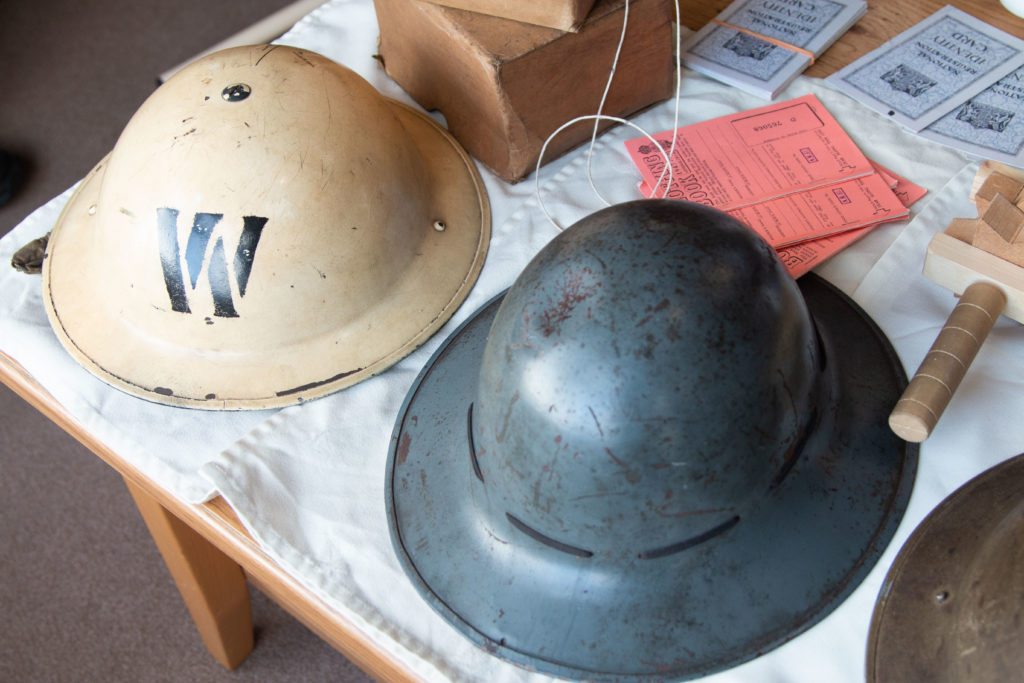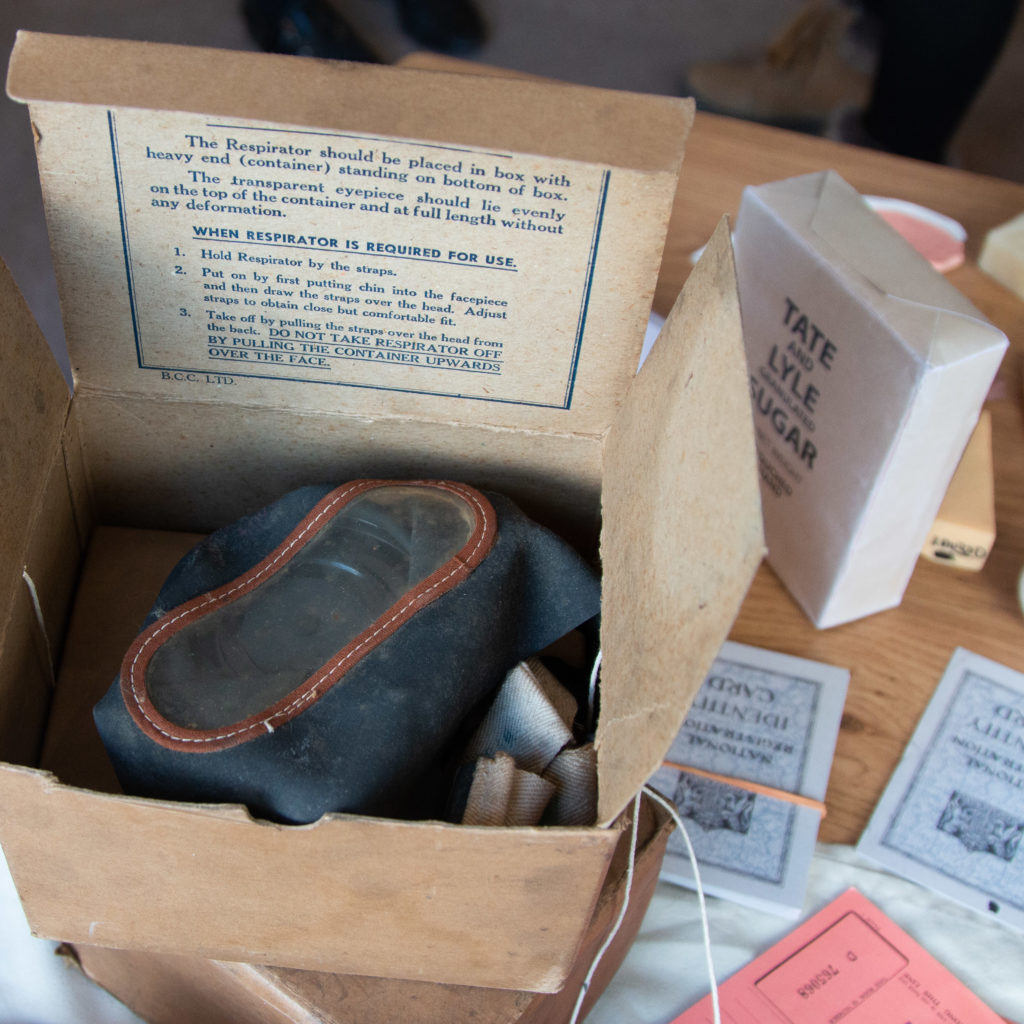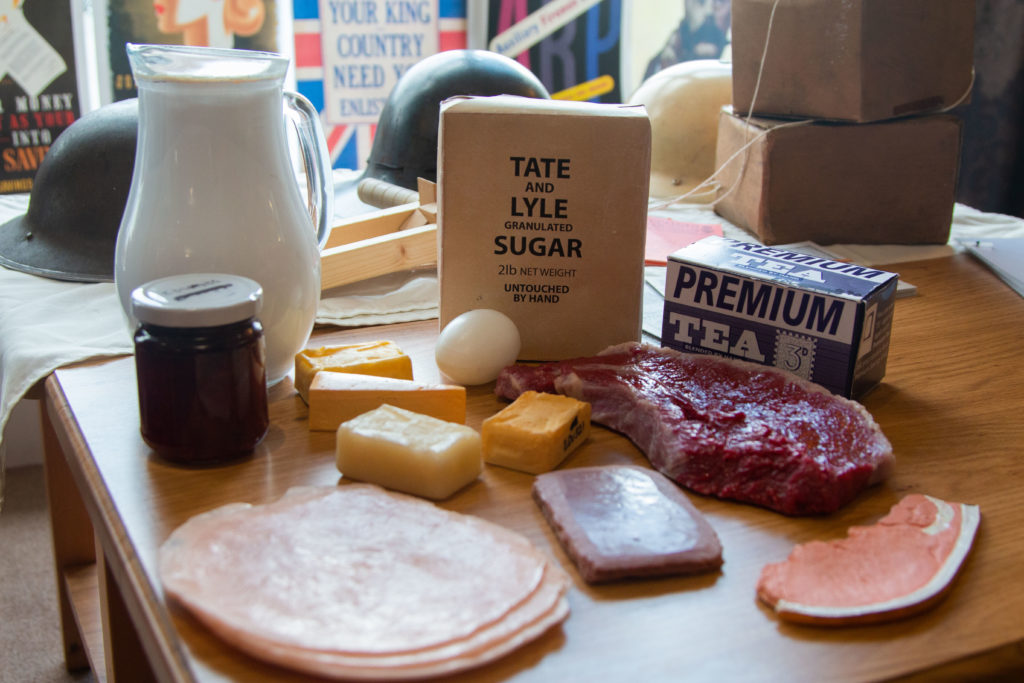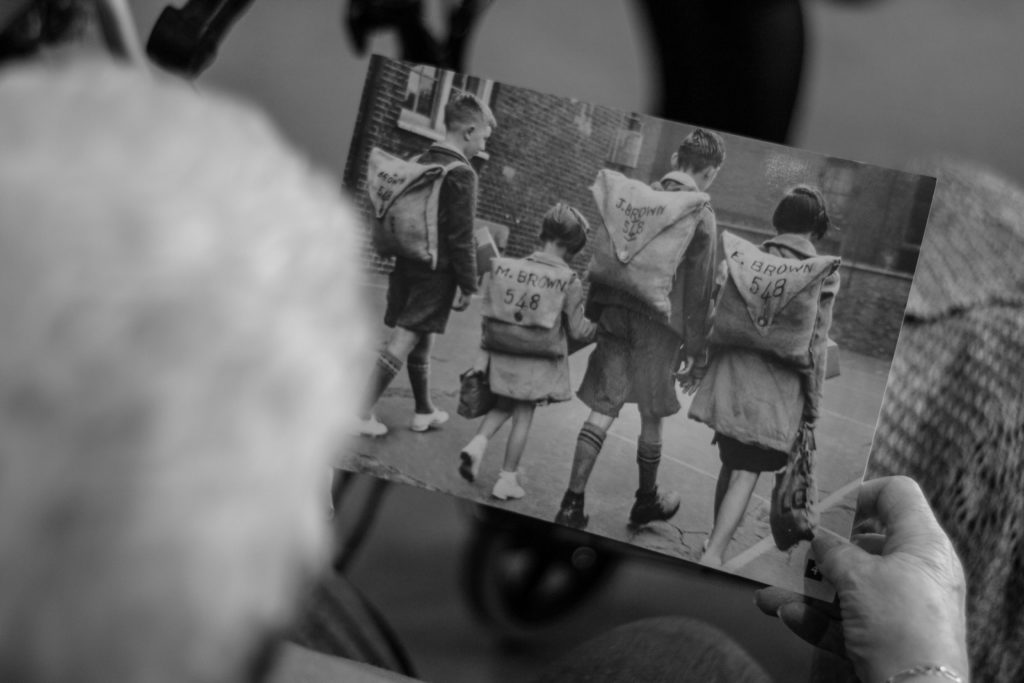Dr. Stephen Tate
July 2020
Welcome to the third post on the blog, Lest We Forget. As part of the WWII East Lancashire Childhoods project the blog aims to examine how family memorabilia combined with shared recollections can help foster a better understanding of the generations associated with World War Two.
In this latest blog I want to examine the idea of oral history. The advantages and some of the pitfalls associated with this method of historical enquiry – a method that might be best suited to the sort of family reminiscences that this World War Two anniversary lends itself to. There’s a sense that oral history, history written or recorded as evidence gathered from a living person, perhaps a family member, can provide us with a direct route to the past, unadorned and unembellished. A means of extending the historical record – what we know of the past – to include the ordinary man and woman, perhaps our elderly relatives and their memories of wartime, or of their parents’ memories as recounted to them many years earlier.
At its most basic, oral history, in terms of this wider heritage project, can be described as talking to elderly relatives about parts of their lives that might otherwise go unrecorded. It involves recording, in some way, their first-hand recollections.
For some historians oral history, the spoken word, is a poor substitute for official records and written sources. They argue that spoken reminiscences leave too much open to doubt and to speculation, too much rests on the whim of the speaker, the person being interviewed, as to what they see fit to reveal and what they wish to remain unsaid. Spoken reminiscences can lack a sense of precision. Memory itself can be elusive and limited, open to forgetfulness and partiality. The order of events can become blurred. There are gaps. And oral history can only take us a relatively short distance into the past. It depends on what people can actually remember accurately!
But proponents of oral history as a means of understanding the past argue that it can deliver a sense of freshness. It assumes that everyone’s memory is valuable, however humble the person speaking or being interviewed might feel. It can certainly expand and extend the range of ‘voices’ from the past, opening the door to those outside elite circles, those living what might be seen as more ‘ordinary’ lives. And the argument that oral history can lack precision is often compensated by the element of emotion and detail that personal memories can deliver. At its best, oral history can deliver powerful insights, it can speak of the lived experience, it can deliver a sense of immediacy, and it can provide colour and drama!
‘Doing’ oral history sometimes involves quite sophisticated techniques, but it can also prove accessible to all. It can deliver a democratic feel to the study of the recent past. Everyone’s testimony can have a value. That is particularly true when, in our case, we might be interested in simple domestic routines associated with life in wartime Britain. The sort of detail that just might not be recorded anywhere else!
One thing to bear in mind if we embark on our own version of an oral history project, is that in recording wartime or as-near-wartime reminiscences as feasible, our presence as an interviewer is bound to affect the person being interviewed. It will influence what they recall and the manner in which they recall it, especially if being led by our questions. Even if we ask no questions and just listen, we are playing a part in the process. As one historian wrote, “the voice of the past is inescapably the voice of the present too”. The memories we are presented with have been filtered through other experiences and in a search for a sense of the past, as in some forensic exercise, we risk ‘contaminating’ the evidence. But that doesn’t mean we shouldn’t try!
But let’s think of a few rules. Presuming we are looking at family members speaking amongst themselves, it is still important to tell the person you are interviewing what your purpose is – what you will be doing with the interview, whether it be written down or recorded. Will you be circulating it among other family members? Or outside the family? If they are to go beyond the family, you need to know if the interviewee is happy to have their name linked to their reminiscences or whether they would prefer a form of anonymity, say, with just their age and perhaps initials to identify the speaker. We must maintain an air of respect, too, in how we deal with the interview process and the end product. It is important to prepare for the interview, or series of interviews. What is it you want to discover? Have starter questions in mind. Decide how much you are prepared to intervene to guide the conversation if things slow down. Consider a few prompts in terms of events, locations or the names of other family members from the interviewee’s generation that might guide the course of the chat. Be prepared to be flexible. Think of the times on TV chat shows when someone being interviewed has started to discuss a really interesting point only to be annoyingly interrupted by the host (all too keen to hear their own voice) and the moment has been lost. Sometimes it’s good just to go with the flow . . .
A good example of oral history in practice can be found on this heritage website (‘When the lights came back on in Blackburn’). Stephen Irwin, Education Officer at Blackburn Museum and Art Gallery, interviewed Richard Croasdale who was a young child when war broke out. The questions Stephen asked in a telephone conversation had been prompted by children from our area, including Blackburn Children’s University, intrigued by the stories on this website. The details Richard reveals are fascinating, and I was particularly taken with the childhood rhyme for skipping! The ordinary parts of life all too easily lost to the record.
On a personal note, I regret not having engaged in that sort of oral history exercise in my father’s lifetime . . .
On the last web posting I said I would continue my late father’s story, following his ‘archive’ in chronological fashion, from the surrender of British forces in Hong Kong in December, 1941, where he was posted in the Royal Artillery, and the means of families finding word of those missing in the pandemonium of war. If you recall, I went out of sequence in the last blog and wrote about a powerful, recurring image of my father’s end to captivity after three-and-a-half years, prompted by the letter home that he wrote to his parents mentioning Lancashire songstress Gracie Fields entertaining the troops in Manila in the Philippines.
I want to return to the months following the fall of Hong Kong to the Japanese army in late December, 1941, and consider the trauma my father’s family must have experienced on the Home Front. The mood is captured in a handful of newspaper clippings and official letters. The first, of January, 1942, a tiny news-cutting from a Burnley newspaper, carries under a small headline, ‘MISSING’, the fact that ‘Gunner Arthur Tate’, who had enlisted aged 15, had been ‘posted missing’ after the surrender of Hong Kong. The nine lines of print are accompanied by a head-and-shoulders pre-hostilities portrait photograph of an incredibly young-looking and proud teenager in uniform. In the same month, his Burnley-based father and step-mother received an official typed letter from the Royal Artillery in Rugby. It was clearly in response to an earlier enquiry seeking news of their son. The letter informs the couple that, ‘I am sorry to say that just at present I am unable to state Gunner Tate’s exact whereabouts. You will appreciate that the recent developments in the Far East have delayed and interrupted the receipt of routine information. It may lessen your anxiety however to know that under present conditions the location of a man or even a Unit may be unknown for a time to the military authorities in England. If you do not receive any news of Gunner Tate within the next few weeks and you will write again to this office, I hope I may then be in a position to be of more help to you’.
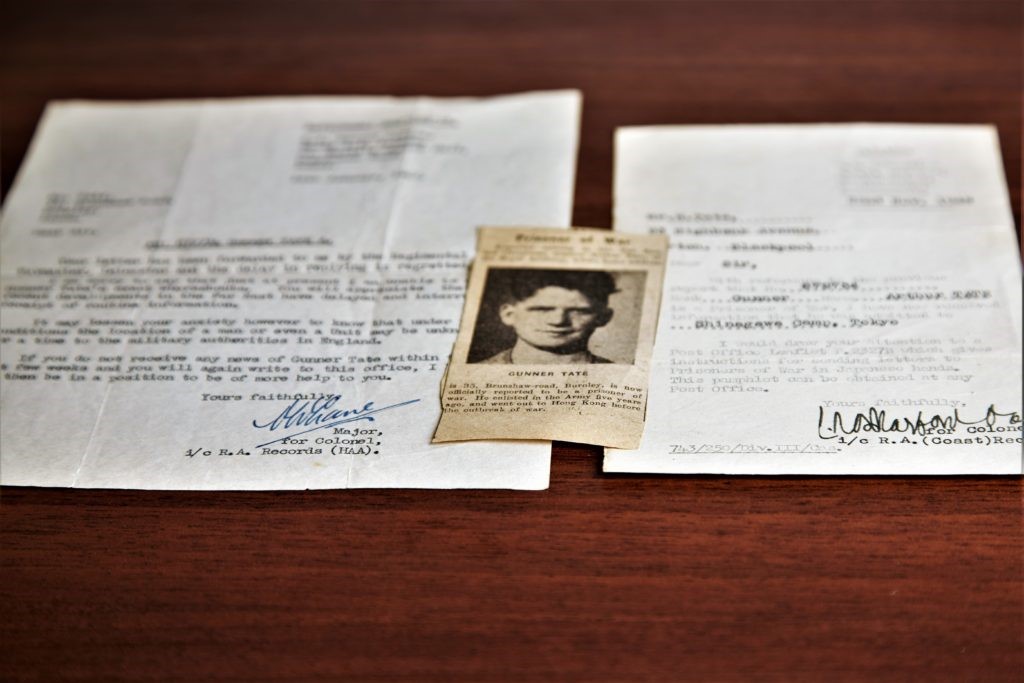
It is clearly a standardised letter, the sort being received at thousands of homes across Britain as the war began to take its toll. Some six months later, in July, 1942, the same Burnley newspaper among its reports of local men missing in action from various theatres of war, carries equally brief news of Gunner Tate, announcing he, ‘is now officially reported to be a prisoner of war’. That, too, is accompanied by a photograph but, intriguingly, one different to the one printed earlier in the year.
There is a postcard among my father’s ‘archive’, unfortunately undated, written in pencil, faded by the years, from ‘Hong Kong Prisoner of War Camp’. In half-a-dozen lines my father writes to his parents, ‘I am quite well and in good health and I hope you are the same. We are being well treated so please don’t worry . . . hoping we will meet again very soon’. Prisoners were allowed to write only brief remarks, approved by their captors. How long it had taken the card to reach Burnley is not known, but presumably it was the first word of his whereabouts, of his survival, since the colony fell months earlier. The mood of his family when the card arrived can only be imagined . . .
In the next blog I want to concentrate on my father’s wartime ‘archive’, and consider the means of staying in touch during the long years of captivity.
I will close this blog by once again using one of my favourite quotes on the nature of History and this time it’s from a book on the sporting past, although the context is not really relevant. Here the author cautions against present-day readers imposing their own ideas, their own world view, on individuals from the past, or of attempting to explain their actions merely in terms of our own experiences. It’s quite a lengthy extract, but it is central to a reasoned understanding of those who have gone before.
“It is worth stepping back from the discipline and its attendant debates to remember that what we call ‘history’ or ‘the past’ was the present for other people. An appreciation of this simple fact is useful when faced with debates about the nature of history. The people who lived through what we are studying were not thinking of themselves in the historical terms that we use for them, but were simply getting on with their lives: fighting their wars, having their families, worshipping their gods, working in their fields, or whatever. Keep this in mind whenever you come across historians using shorthand terms such as ‘between the wars’ or ‘before the industrial revolution’, and remember that the people who lived then could not have known what they were between or before. The period we now call ‘medieval’ or ‘the middle ages’ was, for the people living through it, nothing to do with the middle of anything: to them, each day was the present. Remembering this can also help you to avoid anachronistic judgements about past people’s behaviour, beliefs, or motives. Burning women accused of witchcraft, voting for a dictator, or basing an entire economy on a single crop may all strike us as foolish things for people in the past to have done: but those acts must have made sense or been viable options for the people who did them, and to criticise them only in the light of later evidence or opinions does not make for good history.” – Martin Polley, Sports History. A Practical Guide (Palgrave Macmillan), 2007, p.6.
